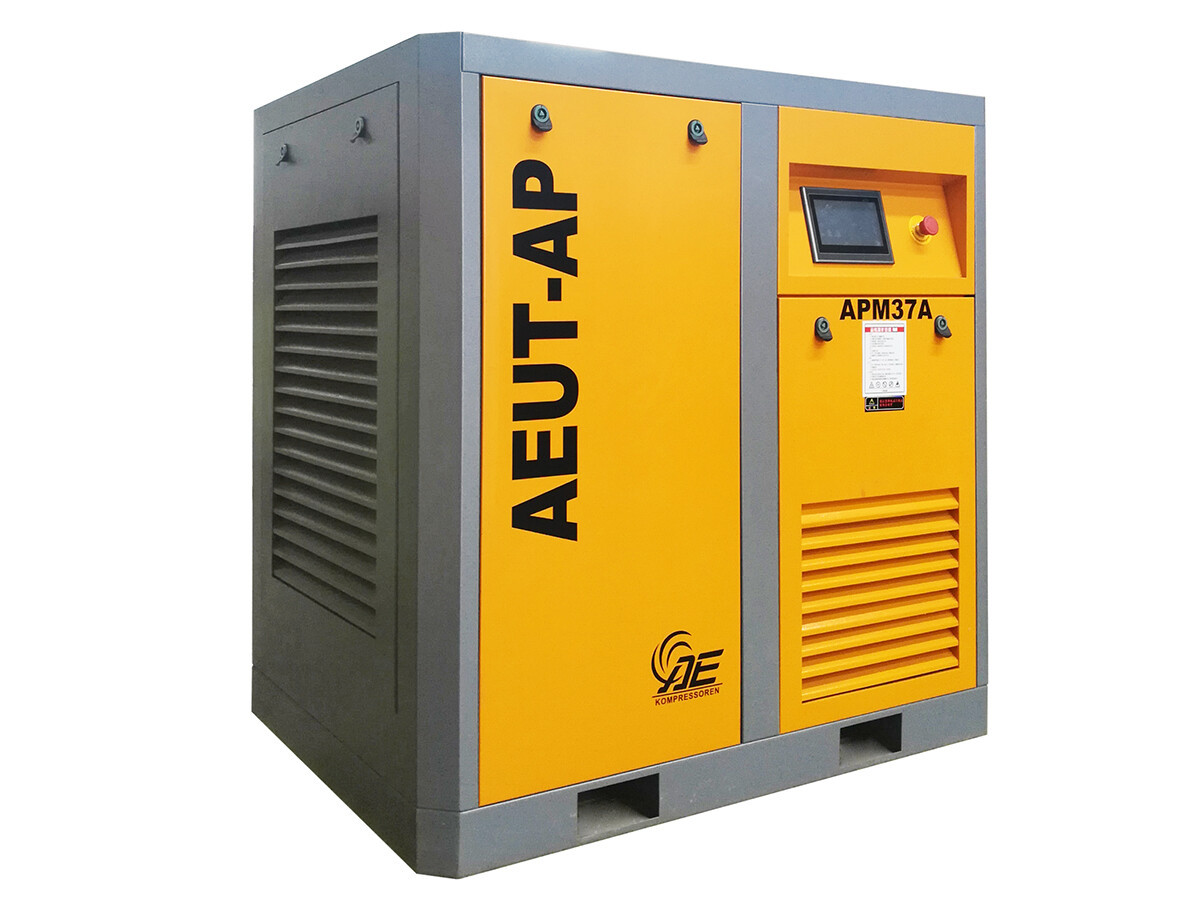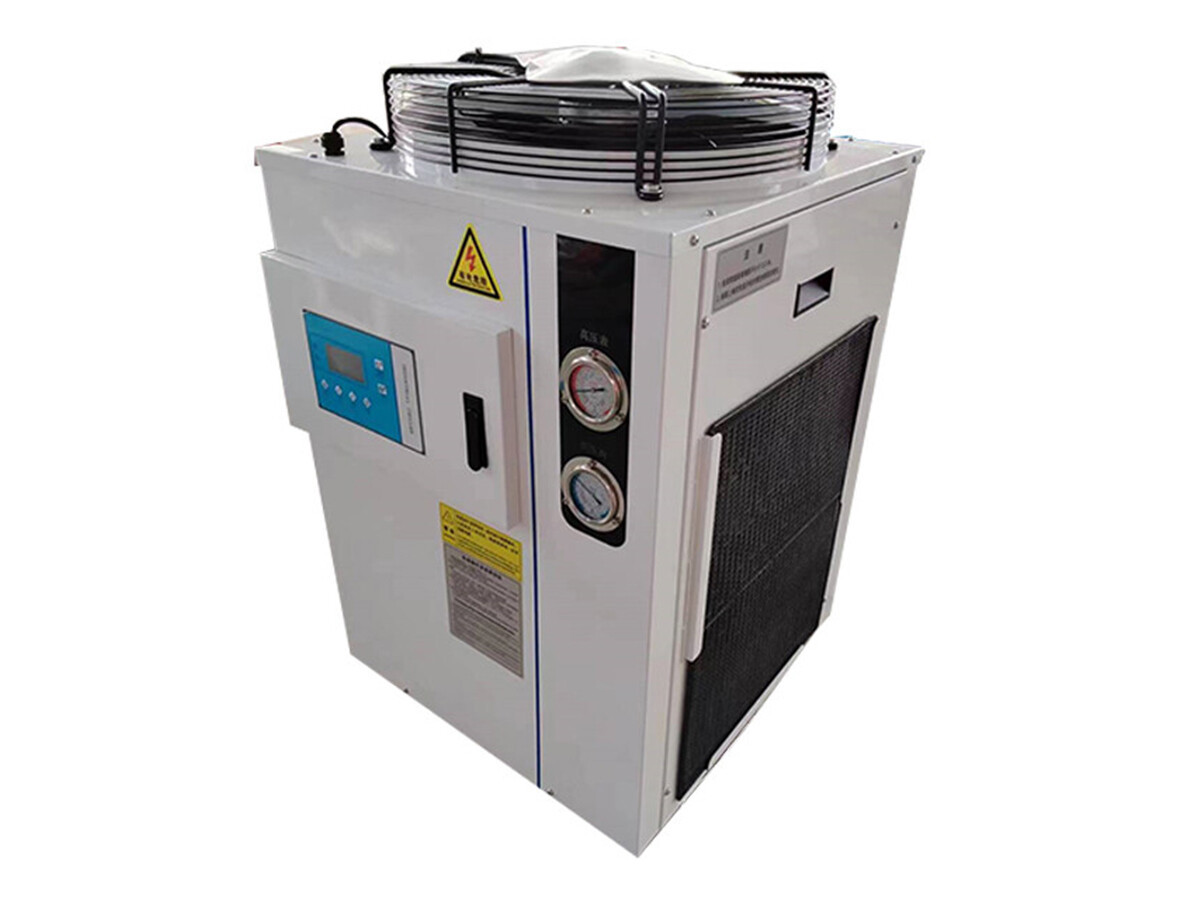1.Water Chillers: Precision Temperature Control for Surface Finishing
Water chillers are critical for maintaining optimal temperatures in anodizing and plating baths, directly impacting coating quality and process efficiency.
Anodizing Process:
Electrolyte Cooling: During aluminum anodizing, electrolyte temperatures must stay between 18°C–22°C to ensure uniform oxide layer formation. Chillers prevent overheating caused by the exothermic reaction, avoiding defects like pitting or uneven coloring.
Dye Bath Cooling: For colored anodized finishes, chillers stabilize dye bath temperatures, ensuring consistent color absorption and vibrancy.
Electroplating Applications:
Plating Bath Stability: Nickel, chrome, or zinc plating baths require tight temperature control (±1°C) to maintain deposition rates and adhesion. Chillers prevent thermal fluctuations that could cause brittle or porous coatings.
Acid Etching: Chillers cool acidic solutions used in pre-treatment cleaning, enhancing etch uniformity while reducing chemical degradation.
Corrosion Resistance:
Industrial chillers with titanium or stainless steel heat exchangers withstand corrosive chemicals like sulfuric acid and chromic acid.
2. Air Compressors: Clean Air for Critical Processes
Oil-free air compressors are essential in anodizing and plating facilities, where air purity prevents contamination of sensitive solutions.
Agitation and Spray Systems:
Solution Agitation: Compressed air is injected into plating baths to agitate electrolytes, ensuring even metal ion distribution and preventing “burning” at high-current areas.
Rinse and Spray Systems: Compressed air powers spray nozzles for post-plating rinsing, removing residues without introducing oil contaminants.
Drying and Automation:
Parts Drying: Oil-free air dry components after rinsing, eliminating water spots that could compromise surface finishes.
Pneumatic Controls: Compressed air drives automated hoists, conveyor systems, and robotic arms for handling parts during immersion or transfer.
Compliance and Safety:
Explosion-Proof Models: Safe for environments with flammable vapors, such as solvent-based pretreatment areas.

3. Synergy Between Chillers and Air Compressors
Integrated systems maximize productivity in surface finishing:
Chillers maintain bath temperatures, while compressors provide clean air for agitation and automation.
For hard anodizing (thick coatings), chillers prevent bath overheating under high voltages, and compressors support high-pressure spray cleaning.
4. Key Advantages in Anodizing & Plating
Enhanced Coating Quality: Stable temperatures and contamination-free air minimize defects like blistering, peeling, or discoloration.
Energy Efficiency: Variable-speed chillers and compressors reduce energy consumption by 20–40%, lowering operational costs.
Regulatory Compliance: Oil-free compressors and corrosion-resistant chillers meet EPA and REACH standards for hazardous chemical handling.
Extended Equipment Lifespan: Reduced thermal stress and chemical exposure prolong the life of tanks, pumps, and filtration systems.

Conclusion
In the anodizing and plating industry, water chillers and oil-free air compressors are vital for achieving precise, high-performance surface finishes. Chillers ensure stable bath temperatures for uniform coatings, while oil-free compressors deliver clean air for agitation, drying, and automation. By integrating these technologies, manufacturers enhance product quality, comply with environmental regulations, and optimize operational efficiency—key factors in meeting the demands of industries ranging from automotive to aerospace.
If you want to buy a high-quality anodizing water chiller and air compressors for your process line in China,
Are you looking for a reliable anodizing water chiller and air compressors supplier to support your business,
Please contact DARKO sales representative to custom cooling system and compressed air solution suitable for your applications.
